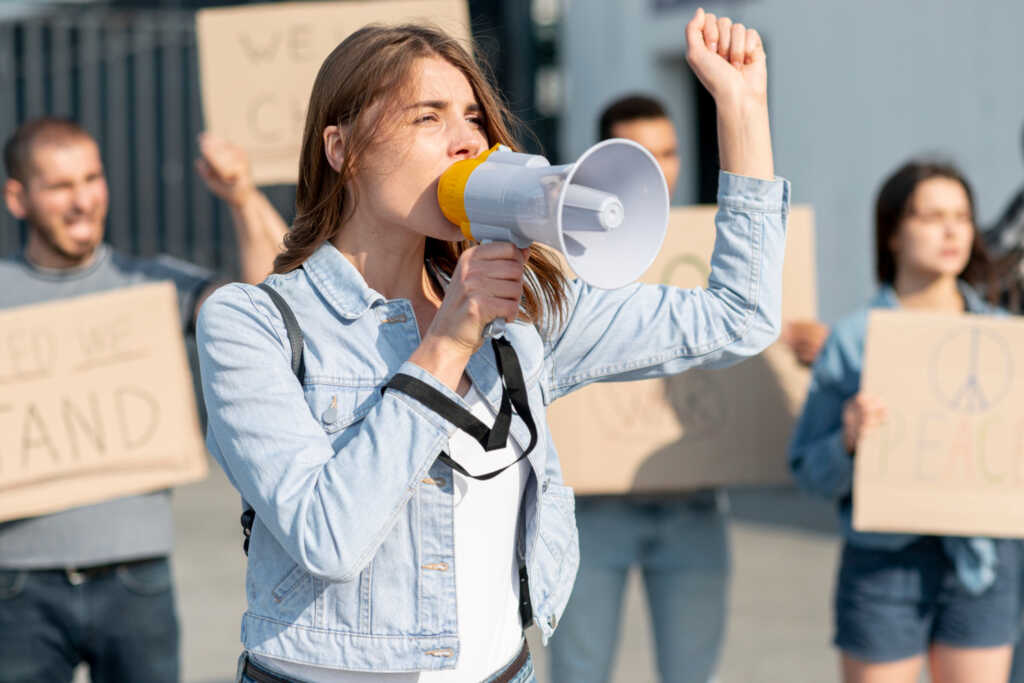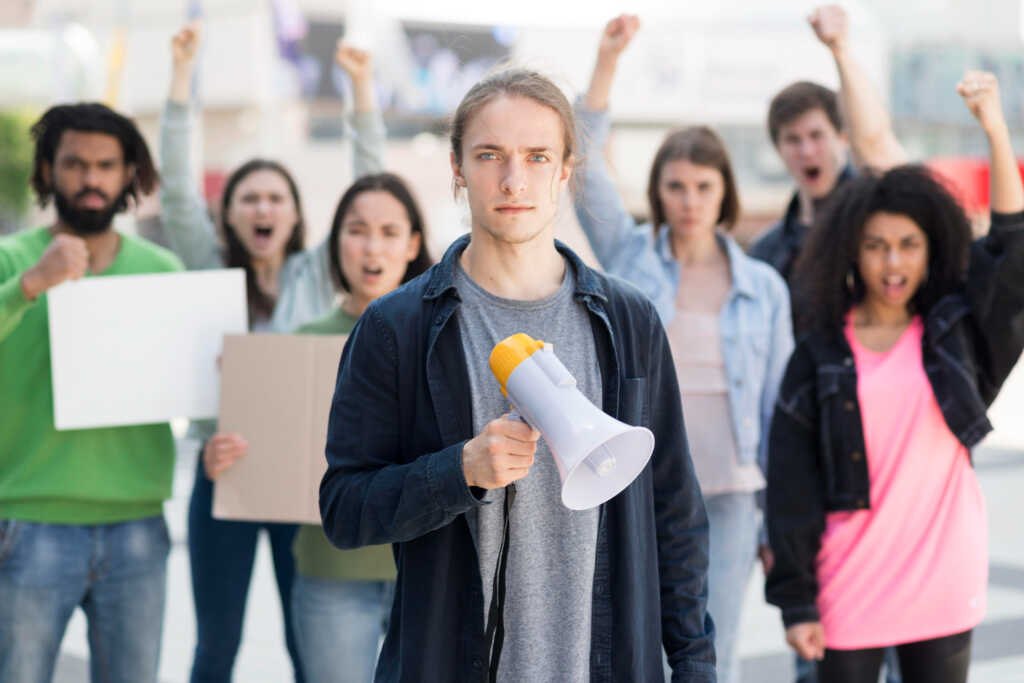
Igniting Change: Exploring the History and Impact of Student Activism on US Campuses
- Last Updated - 04/14/2024 - 11:54 AM
- Universities

In the past, US campuses have served as the epicenters for changes in the political and social spheres which has seen students play an integral role in promoting equality, justice as well as human rights. Since the Civil Rights Movement in the 1960s, to the current environmental activism students have been at the forefront of bringing about positive changes and challenging the status-established order. Take part in our dive into the rich and long-lasting impact of activism by students on US campuses, exploring its growth, accomplishments, and continuing relevance to shaping the future of our society.

1. The Foundations in Student Activism
The activism of students in the United States has deep roots which date from the beginning of our nation’s history. From the abolitionist movement to the women’s suffrage revolution, Students have always been involved in political and social initiatives that promote equality and justice. Student activism was accelerated in the Civil Rights movements during the 50s and 60s when students gathered to fight discrimination, racism, and systemic injustice on and off campus.
2. It was the Vietnam War Era
The Vietnam War era marked a significant moment in the development of student activism as students across the nation gathered in protest against the war and to support women’s rights, civil rights, and protection. Protests, sit-ins, and demonstrations grew in popularity and energized a new generation of young activists, creating the nation to discuss questions of peace, war as well as social justice. Students’ antiwar movements were a key factor in changing public opinion and eventually bringing about the end of Vietnam. Vietnam War.
3. The Continuation of Activism as well as Social Justice movements
In the years that followed the activism of students continued to become a force for social changes on US campuses, taking on issues that ranged from apartheid laws within South Africa to LGBTQ+ rights, sustainability of the environment, along economic justice. Students have staged protests marches and boycotts as well as direct actions to demand changes in policies, institution change, and greater equality and inclusion in society. It is the Black Lives Matter movement, that was sparked by the killings of police of unarmed Black people, that has mobilized activists from the student movement to call for an end to police brutality and racism in the mainstream which has sparked nationwide protests and demands for racial justice.
4. Legacy and Impact
The influence the student-led activism on US campuses is not overstated. From influencing decisions on policy to influencing public debate Student activists have brought about changes on national, local as well as global scales. The impact of activism by students lives on through institutional changes, cultural shifts, and continuing campaigns for justice and equality. Student-led initiatives have led to the creation of diverse and inclusive programs as well as campus resource centers and multicultural curricula designed to increase equality and empower marginalized communities.
5. Opportunities and Challenges
Although student activism has racked up notable victories, it has its challenges and is a target for opposition from a variety of sources. Recently, attempts to stifle student activism, limit freedom of speech, and silence opposition have been uncovered, causing concerns over the loss of democratic principles as well as the suppression of voices from marginalized groups. Yet, students remain active, forming coalitions around issues like climate change, the prevention of gun violence immigration reform, climate change, and social justice, showing the impact of collective action as well as grassroots organizing.
Conclusion
Student activism continues to be a powerful and crucial source of social transformation across US campuses, which embodies the spirit of empowerment for youth as well as civic engagement and participation in democracy. Students remain active in organizing, mobilizing, and demanding equality and justice Their activism acts as an inspiration and source of inspiration to the future generation. By increasing student voices, assisting the grassroots movement, and promoting programs for social change, US campuses can continue to serve as agents of positive change and the agents of change in a fast-changing world.
You might like these..
Randomly chosen articles that you might like.

Cultivating Change: The Vital Role of Universities in Promoting Sustainability and Environmental Consciousness
Universities play an integral role in shaping the beliefs behavior, values, and behaviors of the next generation. In an age of

Best Data Science Course Online in India 2024
Introduction: Data is now the currency of innovation and progress in the age of digitization. A record of every transaction, click,

The Pinnacle of Education: Why USA Universities Stand Out Globally!
In the vast landscape of higher education, USA universities emerge as beacons of excellence, attracting students from every corner of

Choosing the Best University in USA: A Guide to Select the Top USA Universities.
Choosing the best University in USA is a crucial choice that will have a big impact on your educational journey

How to Apply to Any University in USA, Super easy, very simple, and effective.
You can successfully navigate the application process to University in USA with a little planning and attention. Here is a guide

Anyone from India can apply to USA Universities. Yah! It’s easy.
Yes, individuals from India can certainly apply to USA Universities. The application process for U.S. universities can be competitive and

USA Universities are great in terms of Sports as well as education. Yes, You heard it right!
The perception that USA Universities are great in terms of education and sports is shaped by several factors. Here are

Best Universities in USA, You can apply. Yes, it’s correct.
Determining the Best Universities in USA can depend on various factors such as academic programs, faculty expertise, resources, location, and

USA Universities are not good, Is this correct? discuss.
USA Universities are home to many prestigious universities and research institutions that are globally recognized for their academic excellence and

How to apply at Top Universities 2023, follow these steps.
Applying to Top Universities 2023 in USA typically involves several steps. Here’s a general guide to help you through the

You should not do this If you get a chance to USA university. Try them now!
Starting university in a new country, especially the United States, can be an exciting but challenging experience. Here are some

Most Common Mistakes while searching for a new University in the USA, Stay Safe.
While searching for University in the USA, students may make common mistakes that can impact their decision-making process and overall

Why does everyone blindly trust Universities in USA?
While it may not be accurate to say that everyone blindly trusts Universities in USA, there are several reasons why

USA Universities are not good! Says the expert, is that correct?
Certainly! Here’s a more detailed exploration, broken down into Reality of USA Universities, to provide a comprehensive understanding of the

Why and how USA universities become so Popular? Something wrong here.
The popularity of USA Universities can be explained in simple terms through a variety of factors. Let’s break it down:

New Academic Updated! USA Universities are not evolving?
USA Universities are constantly innovating and developing new academic programs to meet the evolving needs of students and the demands




